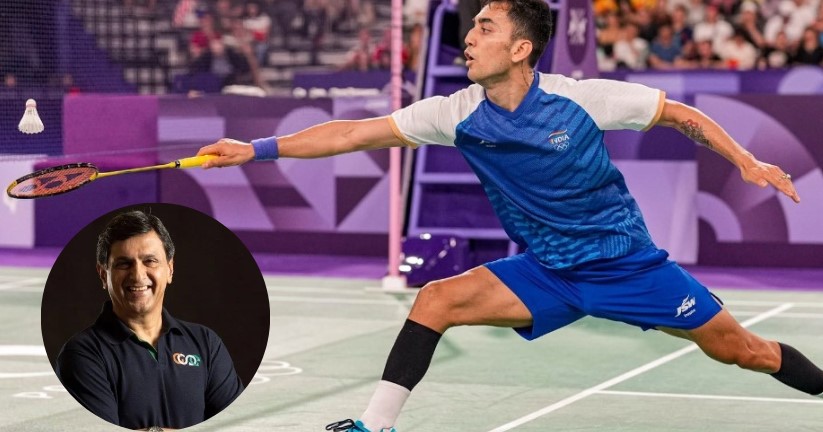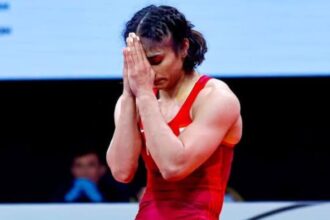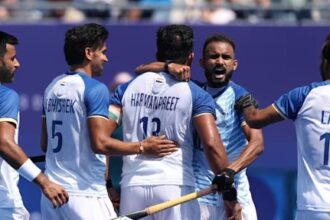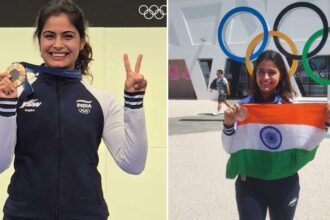August 6, 2024: As the Paris Olympics approach their final stretch with just five days remaining until the closing ceremony, India faces the unsettling prospect of returning home with fewer medals than the seven earned at the Tokyo Games. This looming disappointment has drawn sharp criticism from badminton icon Prakash Padukone, who is far from pleased with the current state of affairs.
Prakash Padukone, a revered figure in Indian sports, has expressed his discontent, calling on athletes to reflect on their performances and question whether they are truly putting in the effort required to secure Olympic medals. He urged players to avoid complacency and emphasized that constant demands for more support without corresponding results are unjustifiable. “Let’s be frank,” Padukone asserted, stressing the need for athletes to take ownership of their performances and for sports federations and the government to adopt a firmer stance with underperforming individuals.
Padukone’s comments came after Lakshya Sen, a prominent badminton player, faltered in his bronze-medal playoff match against Malaysia’s Lee Zii Jia. Sen’s inability to capitalize on an early advantage was particularly disheartening for Padukone, who is a staunch advocate of rigorous training and mental fortitude.
With Five Days Left, India’s Medal Prospects Dim; Prakash Padukone Speaks Out
India’s expectations for a historic medal haul in Paris 2024 have been dampened as the Games progress. Despite arriving in Paris with high hopes for a double-digit medal count, India’s contingent has so far secured only three medals—all bronze—each in shooting. Notably, shooter Manu Bhaker has been instrumental, clinching two of these bronze medals in the 10m air pistol individual and team events.
The underwhelming performance extends beyond shooting. Sports like badminton and boxing, which had previously yielded medals, have yet to make an impact. Additionally, other well-funded disciplines, such as archery, have failed to deliver results. This has led Padukone to question whether the current support systems and facilities are translating into success on the global stage.
Padukone, now 69, brings a wealth of experience and authority to his critique. He is not only a legendary athlete but also a key player in sports administration, running a prominent badminton academy, a high-performance center in Bengaluru in collaboration with cricket legend Rahul Dravid, and the Olympic Gold Quest, a body dedicated to supporting India’s top athletes.
According to Padukone, it is high time for athletes to step up their game and truly deliver when it matters most. He highlighted the extensive support available to athletes, including sports science teams, physiotherapists, strength trainers, and nutritionists. “How much more can you do?” Padukone questioned, underscoring that few countries offer such comprehensive support systems.
Padukone also pointed out the need for a strategic focus on future talent, akin to the approach taken by China, which maintains a robust pipeline of emerging athletes to replace retiring stars. This approach, he believes, is crucial for sustained success.
Looking beyond the current Olympics, Padukone expressed concern over the future of various sports in India. Disciplines like women’s singles badminton and weightlifting appear to be struggling, and Padukone stressed the importance of top athletes mentoring younger generations. He acknowledged the significant contributions of players like P.V. Sindhu to badminton and noted similar efforts in other sports such as shooting, wrestling, and boxing.
Despite substantial investment from the government—Rs 72 crore under the Target Olympic Podium Scheme (TOPS) for customized training programs and support—the results have not met expectations. Padukone speculated that overindulgence might have impacted athletes’ drive and called for a balance between providing support and ensuring accountability.
As the Paris Olympics near their conclusion, India still holds hope for a turnaround with key athletes like javelin thrower Neeraj Chopra and wrestler Vinesh Phogat set to compete. The performance of these athletes could potentially salvage India’s Olympic campaign.
Padukone’s critique highlights a crucial aspect often overlooked—sports psychology. He advocates for greater emphasis on mental training, which he believes could make a significant difference in high-stakes competitions like the Olympics. Ultimately, Padukone underscores that while support systems are essential, the responsibility for success rests with the athletes themselves.






